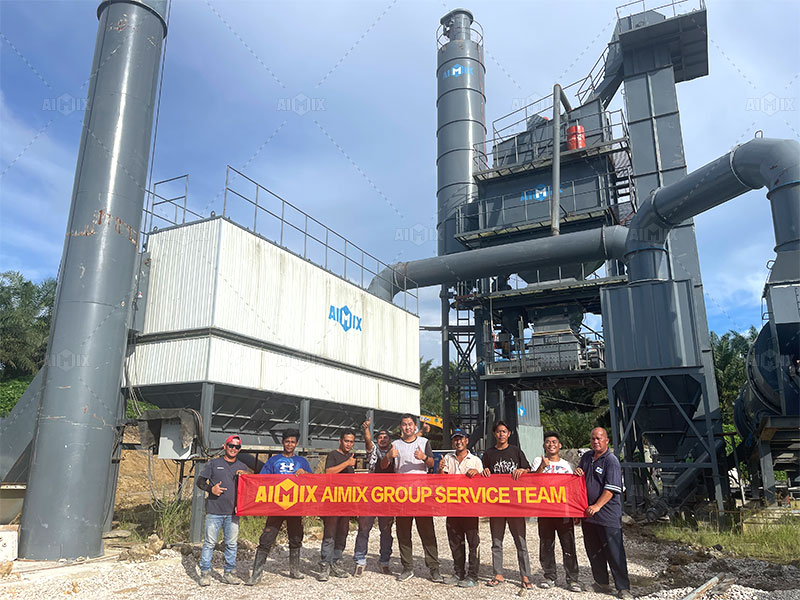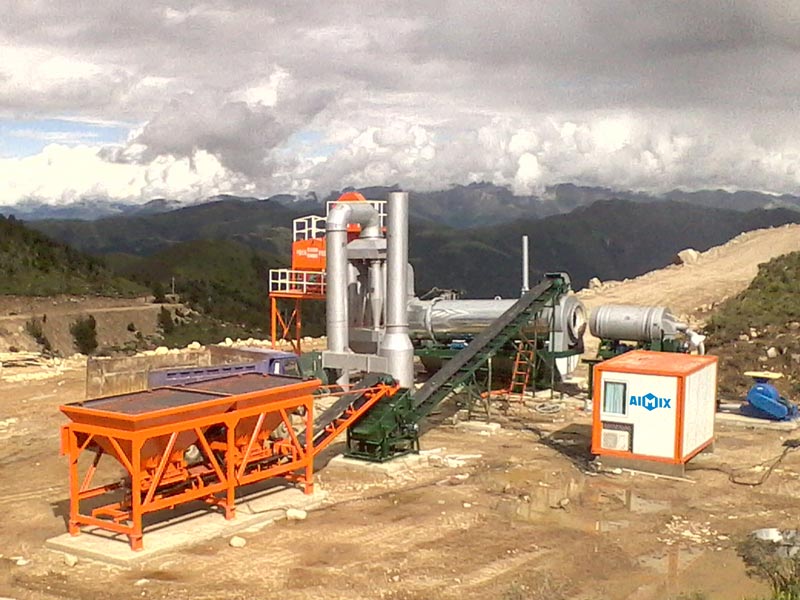The selection of an asphalt mixing plant is a critical decision that significantly influences the success of road construction projects. With a myriad of options available in the market, making the right choice requires a strategic approach.
Define Project Requirements:
The foundation for effective asphalt mixing plant selection lies in a clear understanding of project requirements. Define the scope of the project, including the expected asphalt production volume, the type of asphalt mix needed, and any specific project constraints. This initial step serves as a roadmap for evaluating asphalt plant for sale options that align precisely with the project’s needs.

Evaluate Types of Asphalt Mixing Plants:
Asphalt mixing plants come in various types, each designed for specific applications. The three main types include batch plants, drum plants, and continuous mix plants. Understanding the advantages and limitations of each type is crucial. Batch plants are suitable for small to medium-sized projects, drum plants offer continuous production with high efficiency, and continuous mix plants are ideal for large-scale projects with high production demands.
Consider Mobility and Portability:
The mobility of the asphalt mixing plant is a critical factor, especially for projects that require frequent relocation. Mobile and portable asphalt mixing plants provide flexibility, allowing them to be easily transported between job sites. Assess the project’s geographical scope and mobility requirements to determine whether a stationary or mobile mixing plant is the most suitable choice.
Environmental Compliance:
As environmental regulations become more stringent, selecting a mobile asphalt mixing plant for sale that complies with environmental standards is imperative. Consider plants equipped with features such as dust collection systems, baghouses, and emission control technologies. Environmentally compliant mixing plants not only ensure regulatory adherence but also contribute to sustainable and responsible construction practices.
Evaluate Energy Efficiency:
Energy consumption is a significant operational cost in asphalt mixing plants. Assess the energy efficiency of different plant models, considering factors such as burner efficiency, insulation, and overall energy management systems. Opting for an energy-efficient mixing plant not only reduces operational costs but also aligns with sustainability goals.

Quality of Mix:
The quality of the asphalt mix produced by the plant is a critical consideration. Evaluate the mixing plant’s capability to consistently produce high-quality asphalt that meets the project specifications. Consider features such as advanced control systems, precision in aggregate and asphalt proportioning, and technologies that ensure uniform mixing and coating of aggregates.
Maintenance and Serviceability:
Assess the ease of maintenance and serviceability of the portable asphalt plant. Downtime due to maintenance can significantly impact project schedules. Opt for plants with accessible components, well-designed maintenance interfaces, and a manufacturer that provides comprehensive service and support. Regular and efficient maintenance ensures the longevity and reliability of the mixing plant.
Compatibility with Additives:
Some road construction projects may require the addition of additives to the asphalt mix, such as polymers or recycled materials. Verify whether the selected mixing plant is compatible with the desired additives and has the necessary equipment and systems to incorporate them seamlessly. This flexibility is crucial for adapting to evolving project requirements.
Consider Manufacturer Reputation:
The reputation of the manufacturer plays a pivotal role in the selection process. Established and reputable manufacturers often produce higher-quality mixing plants with advanced features and reliable performance. Research the track record, customer reviews, and industry reputation of potential manufacturers to ensure a reliable and well-supported investment.
Lifecycle Cost Analysis:
While the upfront cost is a significant consideration, it is equally important to conduct a lifecycle cost analysis. Evaluate the total cost of ownership, including initial purchase, operational costs, maintenance expenses, and expected lifespan of the asphalt mixing plant. A comprehensive cost analysis provides a more accurate assessment of the economic viability of the chosen plant. View more details at our official website: https://aimixmachinery.com/.
Conclusion:
Effective asphalt mixing plant selection requires a comprehensive approach that takes into account project requirements, environmental considerations, energy efficiency, and long-term operational aspects. By strategically evaluating different types of mixing plants and considering factors such as mobility, maintenance, and compatibility with additives, construction professionals can make informed decisions that contribute to the success and efficiency of road construction projects. The chosen asphalt mixing plant becomes a cornerstone in the construction process, influencing the quality, sustainability, and cost-effectiveness of the final road infrastructure.